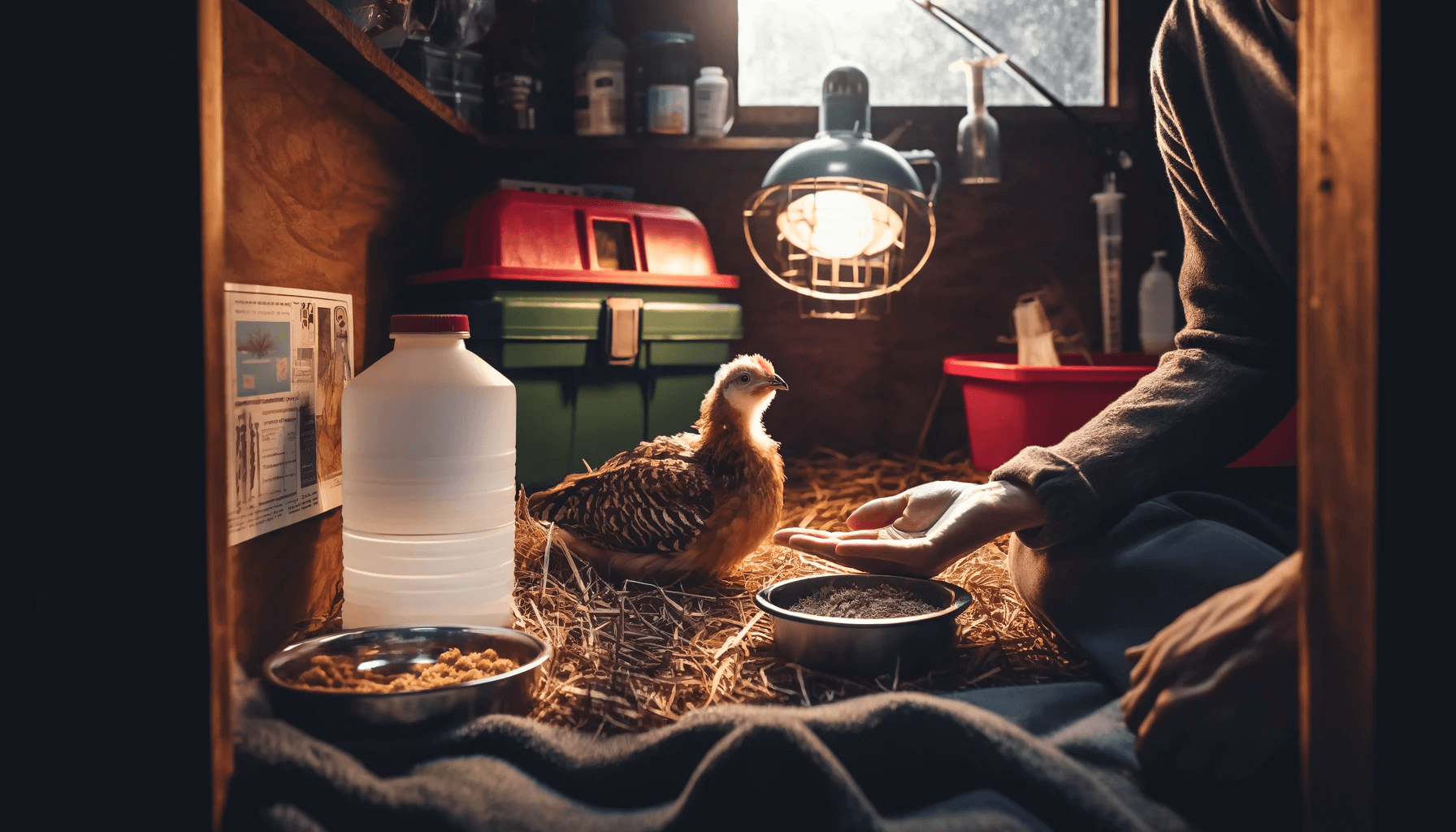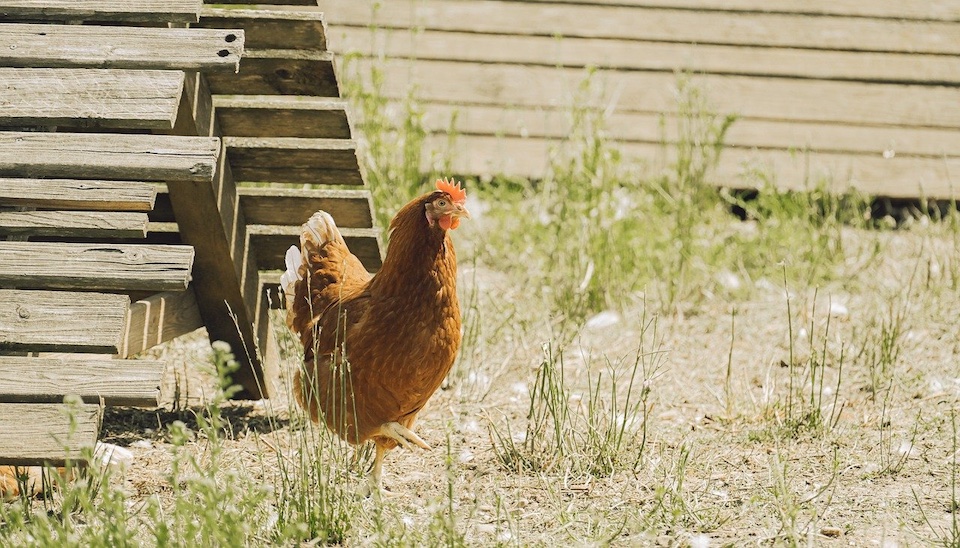How To Help A Sick Chicken Recover
How To Help A Sick Chicken Recover
Keeping backyard chickens can be a rewarding experience, but it also comes with responsibilities, especially when one of your feathered friends falls ill. Understanding what to do with a sick chicken is crucial for its recovery and the overall health of your flock. In this guide, we'll walk you through the steps on how to help a sick chicken recover and what to give a sick chicken to nurse it back to health.
Recognizing the Signs of a Sick Chicken
The first step in helping a sick chicken is recognizing the symptoms. Early detection can make a significant difference to the outcome.
It is important to remember that chickens naturally try to hide the signs and symptoms of injury or illness. If a chicken is visibly sick, it is more unwell than you realise. So unwell that it can no longer hide the signs of illness. Observing your chickens closely so that you are familiar with their normal behaviour will make illness easier to spot.
Common signs of a sick chicken include:
- Lethargy or inactivity
- Loss of appetite
- Abnormal droppings (diarrhea or unusual colour)
- A dirty bottom
- Coughing, sneezing, or wheezing
- Swollen eyes or discharge from eyes and nostrils
- Feather loss or ruffled feathers
- Lameness or difficulty walking
If you notice any of these symptoms, it's time to take action.
Immediate Steps for a Sick Chicken
When handling a sick chicken, always take precautions to prevent the risk of catching the illness yourself. This includes common-sense measures like not keeping the chicken in the house and washing your hands when handling it. If the chicken has respiratory symptoms or an unidentifiable disease, we would also recommend wearing a mask. You can read more about precautions for handling sick chickens here.
-
Isolate the Sick Chicken
Isolation is crucial to prevent the spread of disease to other members of your flock. Set up a comfortable and warm quarantine area where the sick chicken can rest. Ideally this should be away from other chickens and it should never be in your house.
If disease is suspected, you should also clean and disinfect the chicken coop to try to prevent its spread. Adding apple cider vinegar or probiotics to the flock's drinking water may also help.
-
Assess the Situation
Take a close look at the chicken's symptoms. Note any abnormalities and consider what might have caused the illness.
While some problems can be treated at home, it is important to seek veterinary advice promptly if you are unsure of what is causing the sickness. This doesn't mean you necessarily have to take the chicken to the vet, but any mystery illness or disease could pose a bigger risk than you realise. An outbreak of something like Avian Influenza poses a risk not just to your flock, but all of the chickens and chicken keepers in your area.
So if your chicken has a mystery illness or the symptoms point to a particular disease, a phone call to the local veterinarian is essential. The correct advice can protect you, your family, your flock and the wider community.
Here are some causes of a sick chicken that can be treated safely at home:
- Injuries
- Vitamin and mineral deficiencies
- Worms
- Heat stress
-
Provide Warmth
Sick chickens often have difficulty regulating their body temperature. Ensure the quarantine area is warm and draft-free. A bottle filled with warm water or a heating pad can be beneficial, especially in colder climates, but ensure the bird can move away from the heat if it becomes too much.
-
Hydration
Hydration is vital for a sick chicken. Offer clean, fresh water at all times. You can also add electrolytes to the water, especially if the chicken is dehydrated.
What to Give a Sick Chicken
-
Nutritious Food
Encourage the chicken to eat by offering easily digestible, high-energy foods. Make a mash of your poultry feed with some warm water. Replace any uneaten mash every 4-6 hours. Avoid treats and any other additions to the diet.
If the chicken is not eating, consult a veterinarian who might recommend trying some easily digestible treats such as cooked egg or soft fruits.
-
Supplements and Medications
Supplements and medications can help a sick chicken fight off illness and recover more quickly, depending on what is wrong with it.
Electrolytes: If the weather is warm, or the chicken is likely to be dehydrated, for example due to diarrhoea, adding electrolytes to the drinking water can improve hydration and recovery.
Vitamin and mineral supplements: These can help boost the immune system and overall vitality. Add a low-dose supplement like Mega Mineral to the drinking water.
Probiotics: To support gut health and digestion, use an avian probiotic.
-
Herbal Remedies
Some poultry owners use herbal remedies to support recovery. Garlic, oregano oil, and apple cider vinegar are commonly used for their antibacterial and immune-boosting properties. However, these should complement, not replace, conventional treatment.
Monitoring and Care
-
Regular Check-Ups
Monitor the sick chicken closely, checking for any changes in behaviour or symptoms. This will help you gauge whether the chicken is improving or if further action is needed.
-
Keep the Environment Clean
Maintain a clean quarantine area to reduce the risk of secondary infections. Clean and disinfect the cage or coop regularly, and ensure the chicken has clean bedding.
-
Gradual Reintroduction
Once the chicken shows signs of recovery, gradually reintroduce it to the flock. Observe interactions closely to ensure the sick chicken is not being bullied or stressed, as this can hinder recovery. Here are some tips for introducing chickens to the flock.
When to Consult a Veterinarian
You should consult a veterinarian immediately if the chicken is showing the symptoms of any type of communicable disease, as early treatment or prevention may be able to protect the rest of your flock. Some diseases, such as Avian Influenza, pose a huge risk, so it is important to consult a professional rather than try to treat a mystery illness at home.
If your chicken's condition does not improve within a few days, or if symptoms worsen, you should also consult a veterinarian. A professional can provide a proper diagnosis and prescribe the necessary treatment.
Preventing Future Illnesses
-
Maintain a Clean Coop
Regularly clean and disinfect your chicken coop to prevent the build up of harmful bacteria and parasites.
-
Manage Biosecurity
All backyard chicken keepers should be aware of coop biosecurity and do what they can to minimise the risk of disease spreading into their flock. Use this article to make a biosecurity plan for your flock.
-
Provide a Balanced Diet
Ensure your chickens receive a balanced diet with the necessary vitamins and minerals to support their health.
-
Monitor Flock Health
Regularly check all chickens for signs of illness and address any issues promptly to prevent outbreaks.
Conclusion
Knowing what to do with a sick chicken and how to help a sick chicken recover is vital for every poultry owner. By taking swift action, providing proper care, and ensuring a supportive environment, you can help your sick chicken get back on its feet. Always remember, when in doubt, consult a veterinarian to ensure the best care for your feathered friend.
You can read more about chicken illness in these blog posts:
Rachael at Dine a Chook Australia



